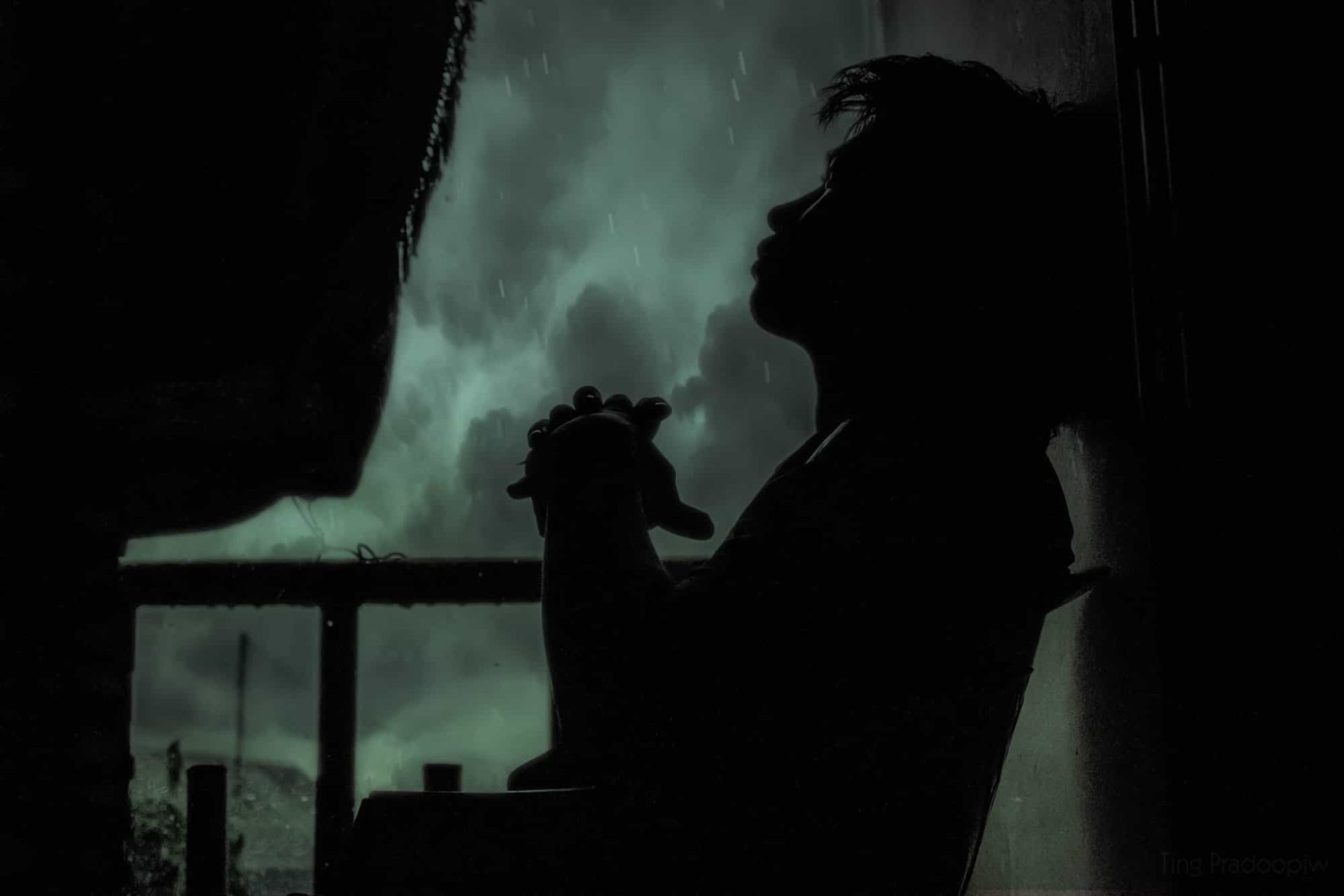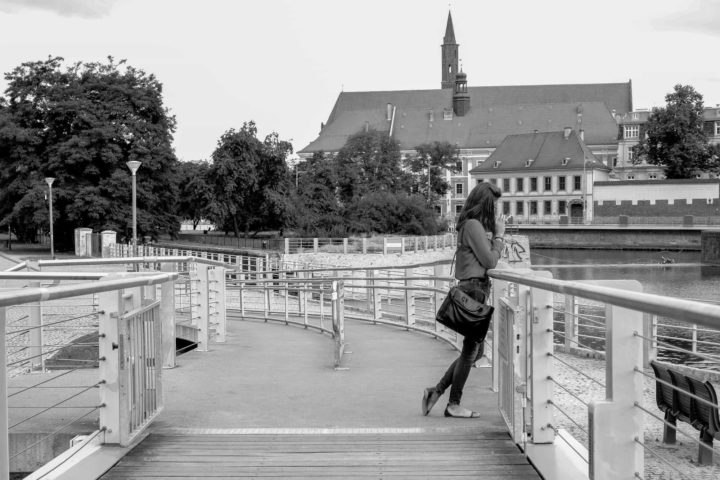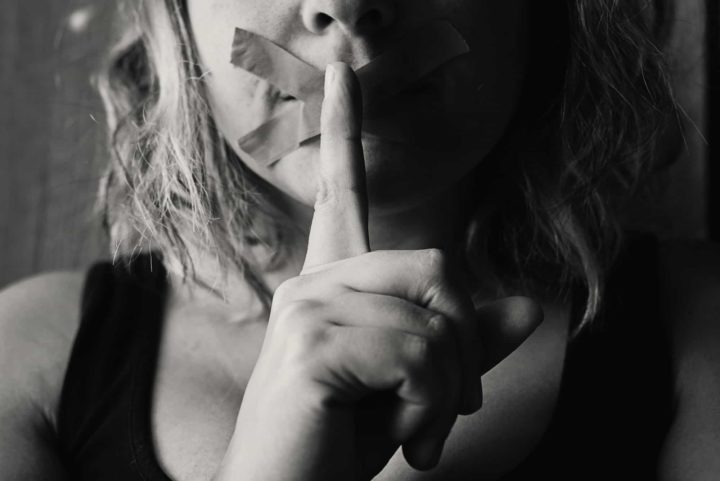“When you are depressed you are doing the wrong thing!”, he said while he held his little motivational speech.
“NO, YOU CAN’T SAY THAT, DEPRESSION IS A MENTAL ILLNESS!”, she interrupted him and yelled back.
I was just sitting there watching the discussion. In my head I agreed to both of them. They could be both right, couldn’t they?
But I assume they both don’t know what it means to be “depressed”. Most people don’t. When you are depressed, often people just assume you are all grumpy or whiny and shit.
“Is today again such a day? Oh come on get it together!” Or: “You have to be positive and appreciate the good things going on in your life!”
God. I love this one.
Depression is a really difficult condition to understand, which can make it hard for us to offer meaningful support if we have a friend or relative who’s facing it.
But it’s also difficult for the one who is supposed to get the support. Oftentimes they can’t handle it either. I sure thing can’t. They need your support. But are unable to ask for it. Or even thank you for it properly. I don’t know if this is just me or it’s a common theme among depressed people. Could be. I don’t know.
I broke up with my girlfriend. And I cried myself to sleep for the next couple of weeks to follow. I miss her support. I miss her. It’s hard to go through all this alone.
Depression isn’t the same for everyone, so there’s no “one size fits all” explanation. In order to help you better understand, I’ve explored some of the common themes and feelings experienced by people struggling with depression so that we can all be a better friend to people who are depressed.
1. Sometimes, you feel nothing at all
People who are struggling with depression will often talk about a complete lack of emotion and feeling. I had days where I didn’t feel anything for weeks.
“Nothing, that was what I felt. All day, every day, NOTHING.”
(“When you are depressed you are doing the wrong thing!”)
After a while you might even forget what it feels like to feel. That is the worst part. Well, actually it is not. Since you forgot what it feels like to feel anyways, see? All good.
It leaves you unable to know how to respond to things that happen each day. Oftentimes I just lay in bed for hours.
Nothing in my head.
Nothing in my heart.
Nothing.
2. Nothing feels real
Often, people who are struggling with depression will talk about their life as if they are living in a kind of dream (or nightmare) state where everything feels somewhat meaningless and surreal:
“When you’ve been devoid of feeling for a while, things take on a different meaning – well a lack of meaning really. Until you’ve lost all feeling, you don’t realise how important a part of the fabric of day to day life our thoughts, feelings and emotions are. I felt like I was kind of sleepwalking. Awake enough to interact with those around me, but never feeling fully present or real.”
I once asked my closest friends if they also feel like their past is a totally different life. A life which somehow doesn’t even exist anymore or never really had. They just looked at me confused. Guess I am the only one feeling that way.
Many people use analogies like being stuck under water or down a well to explain the feeling of distance from the rest of the world.
“Every minute of every day was lived as if I was almost at the point of drowning. The point after you’ve stopped struggling and you’re just lying there, watching the rest of the world as your lungs fill with water and the water envelopes you and you think ‘I don’t belong here anymore.’”
3. You can feel like an observer in your own life
It’s common for people to talk about feeling absent from their own lives.
Being a dreamer is the good side of the coin. Being depressed is the other one. And oftentimes they are very close to each other it seems.
Depression can make you feel like an outsider looking in rather than an active participant:
“It was like watching a TV show of my life. I didn’t necessarily like all of the episodes but I felt incapable of changing them – like some producer had made the decisions, not me. It all just washed over me as I watched on.”
4. The future can feel inconceivable
Both the short and the long term future can feel hard to grasp. This doesn’t necessarily mean feeling suicidal or not wanting to live, but rather just not being able to imagine it.
“My Dad was talking to me about college choices and I just found myself thinking ‘college? is that even possible?’ – not in an ‘I’m stupid’ kinda way, more in a ‘that’s a thing people do, I’m not really ‘people’ I’m just this blob of….nothing…. how could college be for me?”
“My friend suggested that as I was managing a bit better now, perhaps we could get coffee next week. I said no. Not because I don’t like coffee, or didn’t want to be with my friend, but just because I couldn’t get my head around the idea of this afternoon, let alone next week”
Sometimes it even feels like your current life situation is your life.
5. Just occasionally, you have happy moments when it’s all okay
People who struggle with depression sometimes have minutes, hours, or days when things feel real again and they can see a glimpse of what it feels like not to be depressed.
I do have my “glimpses” when I am travelling and feeling abundant. I don’t know why I can’t manage to get it together “at home”.
When I am travelling everything just seems RIGHT.
Maybe the guy at the meeting was right. And I am doing the wrong thing here at home.
Maybe.
I don’t know.
“Every now and then the clouds would clear, and it was like I was alive again. It never lasted long. At first I would just feel so low knowing it would pass, but after a time I learned to grab these moments of respite and do all my living whilst they were with me.”
And then there again is the fear of losing it all again. Of not being strong enough to hold on to it. And everything collapses right in front of your eyes again. And you feel like all this “good emotions” are sucked into the black hole inside you.
And you are unable to stop it…
6. But you feel guilty if you feel okay
There’s a common misconception that if someone is depressed, they never feel okay and never smile. That’s clearly a lie. Look at my Facebook profile picture! I got a pretty nice smile going on.
There are enough times in my life where I feel totally fine and good with myself.
The sad thing though is that I am pretty much unable to fully enjoy myself and NOT feel guilty about it.
When I am travelling for example I always travel with some form of guilt. I felt not worthy of experience the beauty I see around the world.
When I quit my job I was guilty too. I couldn’t bear the fact to disappoint my co-workers.
When I broke up with my girlfriend, it was my fault. I felt guilty to make herself miserable after all we have been through.
It feels like I am not really capable of “being happy”. Like I don’t deserve it. It’s weird. But I guess that’s a side effect of this whole depression thingy.
“I was signed off work for depression, but here I was walking through the park enjoying the sunshine and the bird song. I felt like a total shirker as I thought of my colleagues back at the office picking up my workload. The day before I had not left my bed and, as it turned out, that was also true of the day after too, but right then I felt okay – and I felt guilty for feeling okay.”
7. And sometimes you put on a brave face and everyone thinks it’s okay
It can be pretty easy to fool everyone if you want to:
“Before I leave the house, I check I’ve got my wallet, my keys, and my fake smile. If I’ve got those three things, I’m set.”
CHECK.
All good.
Maybe that’s also the reason why social gatherings are draining me so much. This, or the fact that I am an introvert.
Could be both though.
“After a while, you teach yourself how to act normal. It stops people getting upset and worried. It means that all day, every day is a lie and it’s kind of tiring but it does stop people from worrying so much.”
And you don’t want to be people to be upset because of you.
There is enough guilt already.
8. People want you to be fine, so they believe you if you try to fool them
We can all be guilty of not looking past the “happy mask”:
“When people say ‘how are you?’ they never mean it. The thing is just to say ‘I’m fine’ and plaster on a fake smile. Hardly anyone sees past it.”
After a while you get used to hiding your true intentions and emotions. You do it all day. You bury your emotions deep inside you.
Also, when you are depressed you don’t care explaining this already difficult and complicated situation you find yourself in to someone who doesn’t seem to be interested in you anyways.
So why bother?
9. It really helps when people reach out, but you don’t know how to thank them
When we’re struggling with depression, sometimes we need the friend who sees past the happy mask more than we need air. But we don’t know how to tell them “thank you” or to acknowledge the fact that we need them. We may even ignore them.
I guess being “introverted” and “depressed” is a bad combination. You seek support. You seek help. And social interactions. But you are unable to. And since you have introverted tendencies it’s naturally harder for you to draw good energy from being around a lot of people.
You enjoy being alone.
But being alone makes you more depressed. Because, well, you feel alone in this world.
Weird stuff.
Still, it doesn’t mean we’re not grateful when someone cares and shows support. It’s just that much harder:
“I had the most amazing friend. She stuck by me. Every day she would text or email. Every day I would ignore her but she continued. Just little messages that let me know in her kooky way that she cared. No one else persisted like she did. The rest all took my lack of response as a sign to stop. She, somehow, realised that I needed those messages. They were a lifeline, and the fact that they came without the expectation of a response made them all the more precious.”
At some days these messages are all that keep you going.
You take them for granted until they stop.
Because you don’t know how to properly communicate your appreciation.
And once they are no longer there…
10. It affects your friendships deeply–for better and worse
Depression is a tough illness to face. Many people who suffer from it will lose friends along the way.
However, sometimes it’s also a time when someone really special steps forward, and we develop a lifelong friendship with them:
“It’s hard to be friends with someone who’s depressed. I get that. Most of my friends kind of drifted away.”
“Before I was depressed I had so many friends. Afterwards, I had just one true friend. But one true friend is worth more than a thousand friends who drop away when things get hard.”
I hope this helps you understand – or explain – this difficult illness just a little better.
It’s a tough one.
Maybe I should just do something else.
Maybe I am doing the wrong thing.
Maybe I am just mentally ill and have to work on that.
Maybe they were both right.




